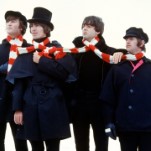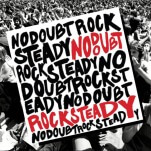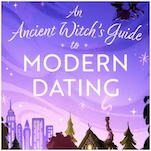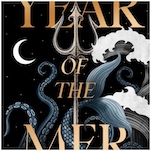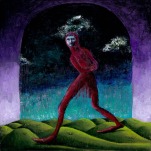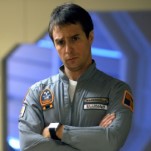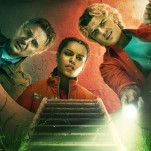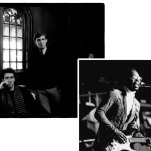Jodorowsky’s Dune
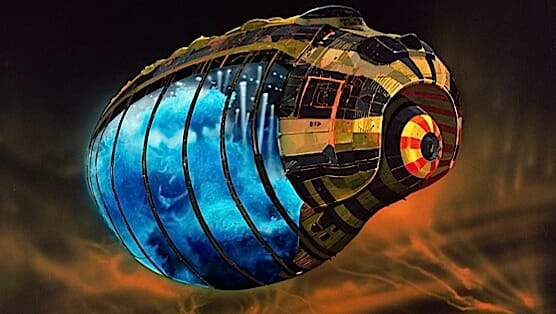
People are fascinated by behind-the-scenes stories of their favorite movies, TV shows and albums. That’s understandable—we all like learning more about the things we love—but what’s more interesting is the cottage industry devoted to works of art that never saw the light of day. Whether it’s reissued deluxe editions of classic albums featuring abandoned outtakes or documentaries like Lost in La Mancha, about director Terry Gilliam’s misbegotten attempt to make a movie out of Don Quixote, we’re also drawn to artistic near-misses. Creativity is an enthralling, frustratingly mysterious creature: Even failures captivate us.
Jodorowsky’s Dune will be catnip to those who like to pore over forgotten pop-culture footnotes, even if you’re not particularly a fan of director Alejandro Jodorowsky or of Frank Herbert’s epochal sci-fi novel. Such particulars hardly matter: It’s the documentary’s grand question of what-if that’s endlessly engaging. Breezy and inconsequential, Jodorowsky’s Dune doesn’t entirely make the case that this aborted, ambitious film project would have been a game-changing masterpiece. But, nonetheless, you’ll walk away from it wishing Jodorowsky had at least been given a shot to try.
Directed by Frank Pavich, the film takes us back to the mid-1970s when Chilean director Alejandro Jodorowsky was riding high from his cult hits El Topo and The Holy Mountain and deciding on his next project. (Because his movies were such psychedelic, surreal experiences, perhaps “riding high” should be used advisedly.) Looking back with the benefit of 40 years’ hindsight, Jodorowsky (the documentary’s principal talking head) explains that he chose to adapt the prize-winning novel Dune even though he hadn’t read it. Regardless, he feverishly assembled a team of the best artists and musicians to help him execute his vision. And as Jodorowsky’s Dune suggests, he got awfully close to achieving it—which made it all the more agonizing for those involved that he didn’t.
Pavich is blessed not just to have access to Jodorowsky’s rich backlog of prep materials—including over 3,000 gorgeously rendered storyboards—but also Jodorowsky himself. Speaking in his broken English that only makes him sound more like a lunatic genius/mystic, he unfurls such statements as “For me, Dune will be the coming of a god. I wanted to make something sacred, free, with new perspective.” Jodorowsky, who just turned 85, seems so extreme, so impassioned that he’d either frighten everyone away or lead them like the Pied Piper. The documentary makes clear that with Dune, the latter happened: Illustrators such as H.R. Giger and Jean Giraud and musicians like Pink Floyd (who were working on Dark Side of the Moon) all lined up to collaborate on Dune, as did Jodorowsky’s own son, Brontis, who was 12 and attached to play the main character, Paul Atreides. (If all that wasn’t enough, Orson Welles, Salvador Dalí and Mick Jagger wanted to act in the film, too.)
-

-

-

-

-

-

-

-

-

-

-

-

-

-

-

-

-

-

-

-

-

-

-

-

-

-

-

-

-

-

-

-

-

-

-

-

-

-

-

-

